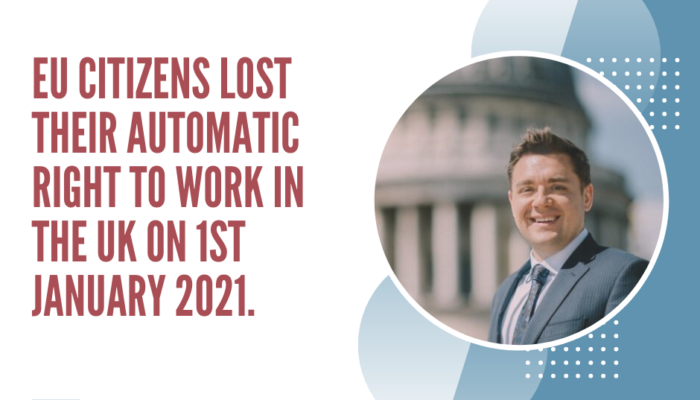How does extradition work in the UK? Has extradition changed since Brexit?
Since 2003, the UK has separated territories into two categories: Category 1 territories, and Category 2 territories
Category 1 Territories
- These include Austria, Belgium, Bulgaria, Croatia, Cyprus, Czechia, Denmark, Estonia, Finland, France, Germany, Gibraltar, Greece, Hungary, Ireland, Italy, Latvia, Lithuania, Luxembourg, Malta, The Netherlands, Poland, Portugal, Romania, Slovakia, Slovenia, Spain, and Sweden
The Home Secretary is not involved in these extradition requests. Typically, a European Arrest Warrant is submitted to the UK by one of these countries. Subject to a test of proportionality for extradition by the National Crime Agency, a certificate is then issued for the arrest of the accused in the UK.
The accused will then have two hearings in the UK; an initial hearing and an extradition hearing. At the initial hearing, the accused’s details are confirmed and they are asked if they consent to their extradition; if they do not, an extradition hearing is set up. At the extradition hearing, the judge will decide if the accused is extradited or not, following a test of proportionality and compatibility with the Human Rights Act. A person cannot be extradited if one of the limits on extradition – listed below (under What limits exist on extradition?) – apply.
The judge’s decision to extradite a person can be appealed to the High Court, and sometimes to the Supreme Court.
The UK still cooperates with European countries on extradition to a significant degree. So far, it does not appear that Brexit has been significantly restrictive on extradition to Category 1 territories.
Category 2 Territories
The UK still has formal agreements with these territories for extradition. There are 2 types of territories in this category: Category A and B.
Category A territories are listed on the right , and these countries do not have to provide prima facie evidence before requesting extradition.
Category B territories are listed on the right, and do have to provide prima facie evidence in support of their requests for extradition.
For both types of these Category 2 territories, the process is different from Category 1 territories. The country wishing to extradite the accused must Make an extradition request to the Secretary of State, who decides whether to certify the arrest. After this,
- The judge decides whether to issue a warrant for the arrest
- If a warrant is issued, the accused is brought to court
- The accused undergoes a preliminary and extradition hearing (with appeals possible)
- The Secretary of State decides whether to order extradition if the judge rules in favour of extradition.
What about countries not listed above?
Every country listed so far has a formal extradition treaty/arrangement with the UK. These exist to make extradition easier, more convenience, and be more of a smooth process. However, one can still be extradited from the UK if a country not listed above requests your extradition, as Section 194 of the Extradition Act 2003 says.
These requests, are, however, subject to limits.
What limits exist on extradition?
Extradition is not a universal or guaranteed process even between countries that do have treaties; there are still certain requirements that need to be satisfied for the UK to decide to allow the accused to be extradited. The most common factors in deciding whether a person is extradited are:
- “Double Jeopardy” – the accused cannot be charged and trialled for the same crime twice. If the accused has already undergone trial – no matter the verdict – for the crime, they cannot be extradited
- The severity of the crime (only some crimes are extraditable – these are extradition offences). The crime must also be a crime both in the UK and in the country requesting extradition.
- The degree to which the prosecution case against the accused is legitimate and advanced
- How much time has passed since the crime was committed
- The age of the accused
- The guarantee that the accused will only be trialled for the crime they were extradited for
- Whether it is more appropriate for the accused to be trialled in the UK
- Whether you are subject to onward extradition. This means that, for example, that if you are extradited to the UK from country A, you cannot then be extradited from the UK to country B unless country A allows you to be
If any of these requirements are not fulfilled, then extradition is not possible.
Does the UK extradite its own citizens?
Yes. The government says that “as a matter of principle”, it consents for its citizens to be extradited – provided the requirements above are met.
What is an Interpol Red Notice?
It is not:
- An arrest warrant. It is an international wanted persons notice – if a person with a red notice is found, they will be arrested provisionally, pending extradition, surrender, or other legal action. They are not arrested entirely.
- A conviction (necessarily). Even if a red notice is issued for a person, they are still innocent until proven guilty. Do note that Red Notices can be given out for people who have been sentenced and are not in the country that has sentenced them – once these people are captured, they will be sent to prison to serve their sentence
- An accusation by Interpol itself. Interpol works on behalf of international tribunals or countries. Countries have to submit requests to Interpol for a red notice to be issued.
- A secret to the person the notice is out for. Interpol’s Commission for the Control of Interpol Files can be contacted to find out if there is a red notice out for a person
Entirely public. Not all red notices are given out to the public – in fact, less than 1/6th are. Only in cases whether the public’s help is required or the individual sought poses a threat to public safety is the Red Notice given out publicly. Typically, red notices are provided to police forces instead.
How is a Red Notice issued?

- Interpol provides this helpful graphic to explain how a Red Notice is issued
- Note that the notice is issued to “all member countries”. Interpol is not universal, but there are only 4 countries which are not member states:
- Micronesia
- North Korea
- Palau
- Tuvalu
- Taiwan is not an official member due to the PRC’s condition of joining Interpol being that Taiwan is not a member, but Taiwan does still work with Interpol
What other types of notices are there?
- Blue – used to obtain information about ‘person of interest’ in a criminal investigation
- Green – used to warn nations about an individual’s criminal activities if they are seen as a possible threat to public safety
- Yellow – used to help locate a missing person or identify a person that cannot identify themselves
- Black – used to find information on unidentified bodies
- Orange – to warn of a person, event, object, or process that presents an imminent threat to persons, society, or property
- Purple – to provide information on methods being used by criminals
Red notices are not always correct
- Sometimes, a case that has been already resolved can still remain in the Interpol database – and this can lead to the sought person being arrested without cause
- It is important to check if you are on the Red Notice list, and if you are there incorrectly, to contact a legal representative to remove the notice.
What is the aim of a red notice?
- To seek the location and/or arrest of a person wanted by a country’s judicial system, or an international tribunal, with the aim of extraditing that person
This returns us to extradition– in which legal assistance is essential if you want a fighting chance at not being extradited. There are conditions to Interpol’s extraditions/red notices too – it refuses to issue them for, for example, predominantly political requests.
Can I fight extradition?
Yes, absolutely. Contact Sterling Law and we will help you every step of the way.












